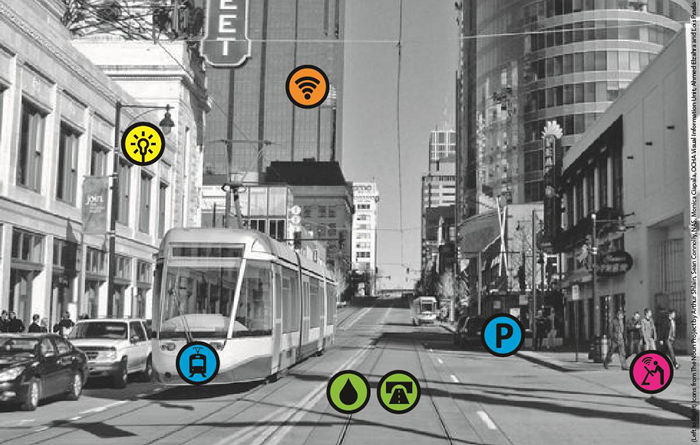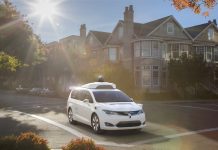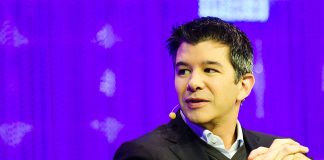In December of 2015 the U.S Department of Transportation issued the Smart City Challenge to any mid size city in America. The challenge was for cities to “use data, applications, and technology to help people and goods move more quickly, cheaply, and efficiently”. 78 cities from across the country stepped up and presented their existing challenges and proposed solutions to becoming a Smart City. While Columbus Ohio won the grant, that did not stop Kansas City from moving forward and partnering with private sector companies to make their plans a reality. Kansas City has successfully turned a two mile stretch of the city into a glimpse of what the future of cities could be.
KC was already on their way of becoming known as an technology sector well before the announcement of the Smart City Challenge. The journey for KC began in 2011 when Google announced them as the first city to have Google Fiber. In 2014 the US Department of Labor funded training to help residents compete in the workforce of the future as well as Tech.com hailed the city as a “promising tech hub”.
As part of the initiative, KC created the KC Digital Roadmap, Mayor Sylvester “Sly” James, Jr says that this road map will “enhance our ability to work towards closing the digital divide in our City, as well as strengthen and promote our City’s digital industry.” The roadmap focuses on 5 key areas: Digital Inclusion, Open Government, Engagement, Industry, and Smart City.

Technology that makes up the Smart City include a free and public streetcar, interactive kiosks, free public WiFi, smart streetlights, and sensors. Information about the streetcars, traffic, and available parking can be viewed in real time here.
The price tag for the Smart City is expected to be around $15 million dollars over the next 10 years with $3.8 million coming from KC and the rest from Cisco, Think Big Partners, and other private companies. The Smart City serve as a “living lab” for companies as they can explore a real world scenarios for innovation and the commercialization of IoT devices.
Mayor Sly James, during his presentation at the Smart City Challenge, described this project as having a single purpose and that is “to enhance the lives of the people who live in our city. This isn’t about technology. It’s not about streets. It’s about people.”











